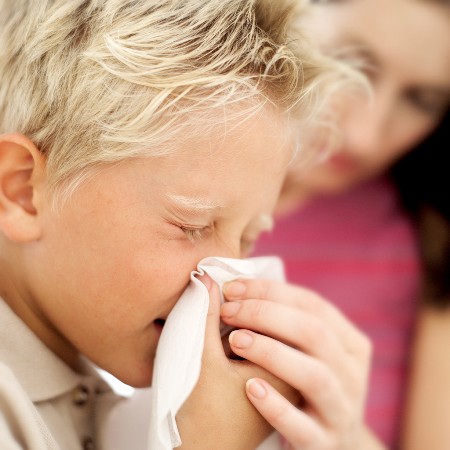
Allergies are of different types. It is the body’s natural defense triggered by symptoms like sneezing, coughing, vomiting and itching. However, there are many myths related to how the disease spreads and its after effects. Here are some of the myths attributed to allergies.
My kids will be allergic to the same thing that I am allergic to.
This is not true because allergies do not run in the family and are not inherited. However, your kids might have the chances of developing allergies that you have but even if you do not have any allergies, they can still develop allergies. So, thinking that your kids will also be allergic to milk just like you is not true. Allergies are not genetically passed on, but can just happen irrespective of the family history showing no signs of allergic reactions.
I should start using my prescription medicines only when the symptoms are really severe.
This kind of thinking is uncalled for, it would be like saving on food when you are actually hungry. Go by what the doctor says and use your antihistamines to relieve your suffering when required. Also, do take your daily dosage of prescribed nasal steroid sprays and other medicines religiously. Not taking the medicines would lead to an aggravation of your condition and can make the situation life threatening as well.
You can outgrow your allergies as you age.
This is not true as a vast majority of people do not ‘grow out’ of their allergies. However, some do become less sensitive to their allergens by avoiding them. Asthma is one such constant state of airway irritability that simply cannot be outgrown of. Same is the case with other allergies that can be kept in control by taking proper medication but cannot be outgrown of. However, children do outgrow a few food allergies related to milk, wheat, eggs and soybean. But, various other allergies pertaining to nuts, peanuts, fish, etc., cannot be outgrown.
Flower pollen is the main reason behind allergies.
The heavy pollen produced by flowers is not what sets off your allergies, but it is the light pollen from grass, trees and weeds that result in allergy symptoms like runny nose, itchy eyes and sneezing. Flowers are least likely to cause allergies as the pollen is heavier and is not easily carried by the wind unlike the lighter pollen from trees and grass. Therefore, next time you go to the garden, don’t blame the flowers for your sneezing episodes!
Pet hair causes allergies.
The hair of pets is not the cause of allergies but the real culprit is the protein that is produced in the saliva or skin glands of the animals. Cats lick their body to become clean and therefore they can cause a lot of allergic symptoms in humans. So, if you think keeping your pets shampooed and clean will decrease the chances of allergy, you are wrong as the urine, dander and saliva of pets is the actual cause. Some people consider certain breeds of dogs and cats to be non allergenic breeds, but that is again a myth as they have skin and upon scratching, dander is released into the air which causes allergies.
Hay fever is caused by hay.
Names can be misleading and hay fever is one of them. The term ‘hay fever’ is quite misleading as one tends to associate the allergy with hay and fever. However, the surprising element is that it is neither a fever nor is it caused by hay. The term hay fever is used to describe an allergic reaction that leads to coughing, nasal congestion, runny nose, shortness of breath, sneezing that can be set off by plants that produce spore yielding molds or pollen.
Inhaled medications for allergies are dangerous.
Inhaled medications are considered to be the most effective and most safe if you want to treat inflammation as a result of allergy and asthma in particular. It would be dangerous if you do not use inhaled medication that have been prescribed by the doctor. For instance, if you are suffering from acute asthma, not using the inhaled asthma controller medicines might result in a life threatening situation for you. You should religiously follow your prescribed medication rather than presuming what might be good for you.




